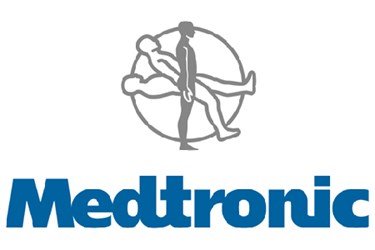Medtronic Downplays New Inversion Deal Restrictions
By Jof Enriquez,
Follow me on Twitter @jofenriq

Medtronic says it will not be impacted by the latest temporary rules and restrictions imposed by the U.S. Department of the Treasury and the Internal Revenue Service (IRS) against so-called inversion deals performed by medtech and healthcare companies to ease their U.S. tax burden.
The Treasury Department announced recently that it will further limit inversions by disregarding foreign parent stock attributable to recent inversions or acquisitions of U.S. companies, and by putting the clamps on a financial tactic called earnings stripping, wherein foreign subsidiaries borrow from the American parent company to lower the tax bill.
"Those moves create deductible interest in the U.S., reducing the income subject to the 35 percent U.S. corporate tax rate and shifting income to a lower-taxed jurisdiction. If a U.S.-based company tried the same technique by borrowing from its offshore subsidiaries, the government would tax that income at the U.S. rate," reports the Wall Street Journal.
These new restrictions add to earlier efforts by the Treasury to rein in inversions, including prohibiting “hopscotch” loans, and preventing inverted companies from restructuring a foreign subsidiary in order to access the subsidiary’s earnings tax-free.
Similar to how they reacted to those earlier tax rule changes, however, Medtronic shrugged off the latest moves by tax officials.
"Medtronic has concluded that the Temporary and Proposed Regulations do not have a material financial impact on any transaction undertaken by the company," the company said in a statement. "Medtronic will continue to more fully examine the Regulations and will provide appropriate disclosure concerning any potential material impact on the company, if applicable."
Under the $43 billion deal to acquire Covidien, Medtronic moved its tax domicile to Dublin, Ireland, where the main corporate tax rate is 12.5 percent, which is significantly lower than the 35 percent tax rate in the United States.
Medtronic maintains that its acquisition of Covidien was undertaken for "strategic reasons," and that the tax savings it generates as a result of the transaction will ultimately be re-invested back to the U.S. and create more jobs in the American medtech sector.
U.S. tax officials, however, remain unconvinced.
"Genuine cross-border mergers make the U.S. economy stronger by enabling U.S. companies to invest overseas and encouraging foreign investment to flow into the United States," stated a press release from the Treasury Department. "But these transactions should be driven by genuine business strategies and economic efficiencies, not a desire to shift the tax residence of a parent entity to a low-tax jurisdiction simply to avoid U.S. taxes."
This third wave of tax rule changes against inversions to be implemented by officials had forced Pfizer and Allergan to terminate their planned $150 billion merger, which would be the largest deal of its kind, according to the WSJ.
The Treasury Department admits that its series of administrative actions will have temporary and limited impact on an increasing number of U.S. companies planning to do inversions.
"These actions took away some of the economic benefits of inverting and helped slow the pace of these transactions, but we know companies will continue to seek new and creative ways to relocate their tax residence to avoid paying taxes here at home,” said Treasury Secretary Jacob J. Lew, in the release. He called on Congress to enact tax reform legislation to affect more lasting impact.
